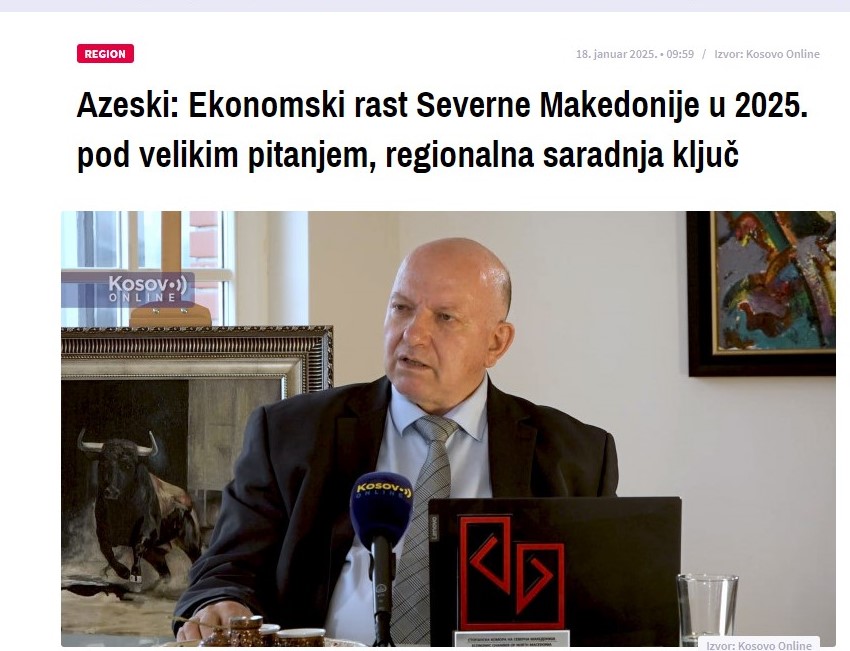„Dimitrie Cupovski“ 13, 1000 Skopje +38923244000 ic@mchamber.mk
„Dimitrie Cupovski“ 13, 1000 Skopje +38923244000 ic@mchamber.mk

ECNM President Azeski stated that our country’s economic growth for 2025 is under significant uncertainty. He pointed out that political tensions in the region hinder development and emphasized the necessity of greater regional cooperation to secure economic progress in the Balkans.
While the European Commission’s report estimates North Macedonia’s GDP growth at 3.5% for 2025, Azeski cautioned that numerous factors make precise forecasting difficult.
“I believe the risks are too great to accurately determine the growth rate because Europe faces unprecedented challenges today, including the ongoing war in Ukraine, which casts a long shadow over all of us, creating enormous uncertainty,” Azeski said.
He underlined that inflationary pressures, persisting for over a decade, have worsened due to regional crises. Although optimistic about potential growth, Azeski reiterated that forecasts remain highly uncertain.
“We will do everything within the state to reach a consensus on this issue and increase investment activity and the inflow of fresh capital into local enterprises through budget structuring. This will accelerate decentralization, which is currently stalled, potentially leading to increased investments and exports,” he explained.
Azeski also commented on last year’s salary increases, which coincided with rising inflation. According to him, this demands careful budget management and skillful oversight by the Ministry of Finance, the National Bank, and the Government.
Discussing citizens’ purchasing power, he highlighted the “incredible rise in food prices,” which seriously affects both entrepreneurs and living standards.
“The general conclusion is that we’re witnessing an extraordinary rise in food prices, bordering on irrationality in market economy conditions. How will this impact us? Negatively—for both enterprises and the standard of living for citizens,” he added.
The President emphasized that regional cooperation is essential for economic progress in the Balkans.
“There is no alternative; we now understand this. If we don’t get the region on its feet and establish serious trade, we’re finished. Our region consists mostly of small countries with modest achievements. Those that should be driving forces—the locomotives of development—are always grappling with serious problems, which prevents us from advancing,” Azeski stated.
Azeski also criticized the ongoing political tensions in the region, which, he said, dominate and stifle development efforts.
“We need to focus on regional development and create a driving force from the strongest economy in the Balkans to pull us forward. Right now, we lack this. We’re still arguing among ourselves. Everything must be directed toward implementation—realizing what has been agreed upon—because without that, there is no alternative,” Azeski concluded.